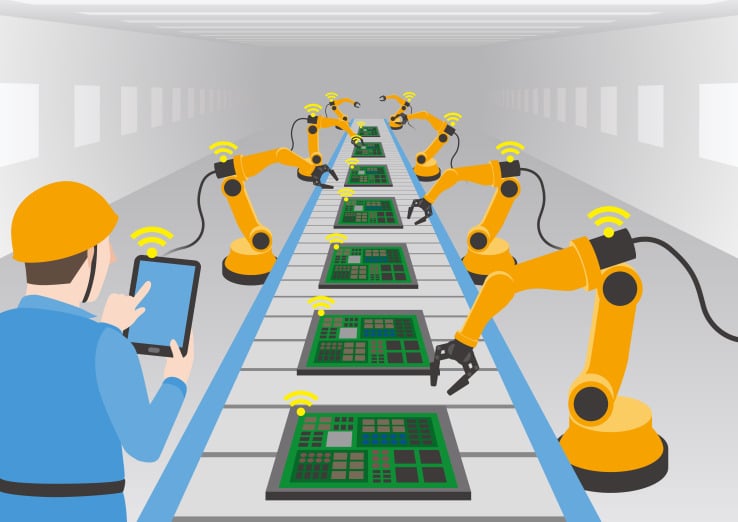The digital transformation of business is not just a trend; it is a fundamental shift that is reshaping industries across the globe. With the integration of artificial intelligence (AI) and automation, companies are redefining their operational frameworks, enhancing efficiency, and improving customer experiences. This transformation is driven by the need for businesses to adapt to rapidly changing market demands and technological advancements, making it essential for organizations to embrace these innovations to stay competitive.
In this article, we will delve into the various aspects of how AI and automation are revolutionizing traditional business models. You will learn about the key technologies that are driving this change, including machine learning, robotic process automation, and data analytics. We will also explore real-world examples of companies that have successfully implemented these technologies, showcasing the tangible benefits they have experienced. Furthermore, we will discuss the challenges businesses face during this transition and how they can overcome them to fully leverage the potential of digital transformation.
As you continue reading, you will gain valuable insights into the future of work and the skills that will be in demand in an increasingly automated world. Whether you are a business leader, an employee, or simply curious about the impact of technology on our lives, this article will provide you with the knowledge and inspiration to navigate the digital landscape. Join us on this journey to understand how AI and automation are not just reshaping industries, but also redefining the very essence of business itself.
The Role of AI in Enhancing Customer Experience
Artificial Intelligence (AI) is revolutionizing the way businesses interact with their customers. By leveraging AI technologies, companies can analyze vast amounts of data to gain insights into customer preferences and behaviors. This enables businesses to personalize their offerings, leading to improved customer satisfaction and loyalty. For instance, AI-driven chatbots provide instant support, answering queries and resolving issues in real-time, which enhances the overall customer experience.
Moreover, AI algorithms can predict customer needs by analyzing past interactions and purchasing patterns. This predictive capability allows businesses to proactively offer products or services that align with customer interests, thereby increasing conversion rates. As a result, companies that effectively integrate AI into their customer service strategies are likely to see a significant boost in customer engagement and retention.
Automation in Supply Chain Management
Automation is transforming supply chain management by streamlining operations and reducing costs. With the integration of automated systems, businesses can optimize inventory management, track shipments in real-time, and enhance logistics efficiency. For example, automated inventory systems can predict stock levels and reorder products before they run out, minimizing the risk of stockouts and overstock situations.
Additionally, automation tools can facilitate better communication between suppliers and retailers, ensuring that all parties are informed about inventory status and delivery schedules. This transparency not only improves operational efficiency but also fosters stronger relationships within the supply chain. As a result, companies that embrace automation in their supply chain processes can achieve greater agility and responsiveness to market demands.
Data-Driven Decision Making
The digital transformation of business is heavily reliant on data-driven decision-making. Organizations are increasingly utilizing big data analytics to inform their strategies and operations. By collecting and analyzing data from various sources, businesses can identify trends, measure performance, and make informed decisions that drive growth. This analytical approach allows companies to pivot quickly in response to market changes and customer feedback.
Furthermore, data visualization tools enable stakeholders to interpret complex data sets easily, facilitating collaborative decision-making across departments. As businesses continue to harness the power of data analytics, they can uncover valuable insights that lead to innovative solutions and competitive advantages in their respective industries.
The Impact of AI on Workforce Dynamics
As AI and automation technologies become more prevalent, they are reshaping workforce dynamics across industries. While some fear that automation will lead to job displacement, it is essential to recognize that these technologies can also create new opportunities. AI can handle repetitive tasks, allowing employees to focus on more strategic and creative aspects of their roles. This shift not only enhances job satisfaction but also drives innovation within organizations.
Moreover, businesses must invest in reskilling and upskilling their workforce to adapt to the changing landscape. By providing training programs that equip employees with the necessary skills to work alongside AI technologies, companies can ensure a smooth transition and maintain a competitive edge. Ultimately, the integration of AI into the workplace can lead to a more efficient and engaged workforce.
Ethical Considerations in AI and Automation
As businesses increasingly adopt AI and automation, ethical considerations become paramount. Issues such as data privacy, algorithmic bias, and the transparency of AI decision-making processes must be addressed to build trust with consumers and stakeholders. Companies must implement robust data protection measures to safeguard customer information and ensure compliance with regulations.
Additionally, organizations should strive for fairness in their AI systems by actively working to eliminate biases that may arise from training data. By prioritizing ethical practices in AI development and deployment, businesses can foster a responsible digital transformation that benefits all stakeholders. This commitment to ethics not only enhances brand reputation but also contributes to a more equitable society.
| Aspect | Description |
|---|---|
| Definition | Digital transformation refers to the integration of digital technology into all areas of a business, fundamentally changing how it operates and delivers value to customers. |
| Role of AI | Artificial Intelligence (AI) enhances decision-making, automates processes, and provides insights through data analysis, leading to improved efficiency and innovation. |
| Automation | Automation streamlines repetitive tasks, reduces human error, and allows employees to focus on higher-value activities, thus increasing productivity. |
| Industry Impact | Industries such as healthcare, finance, manufacturing, and retail are experiencing significant changes due to AI and automation, improving service delivery and operational efficiency. |
| Challenges | Businesses face challenges such as resistance to change, the need for new skills, and concerns about data privacy and security during digital transformation. |
| Future Trends | Future trends include increased personalization, the rise of smart technologies, and the growing importance of data analytics in driving business strategies. |
| Conclusion | Embracing digital transformation through AI and automation is essential for businesses to remain competitive and meet the evolving needs of customers in a digital-first world. |



